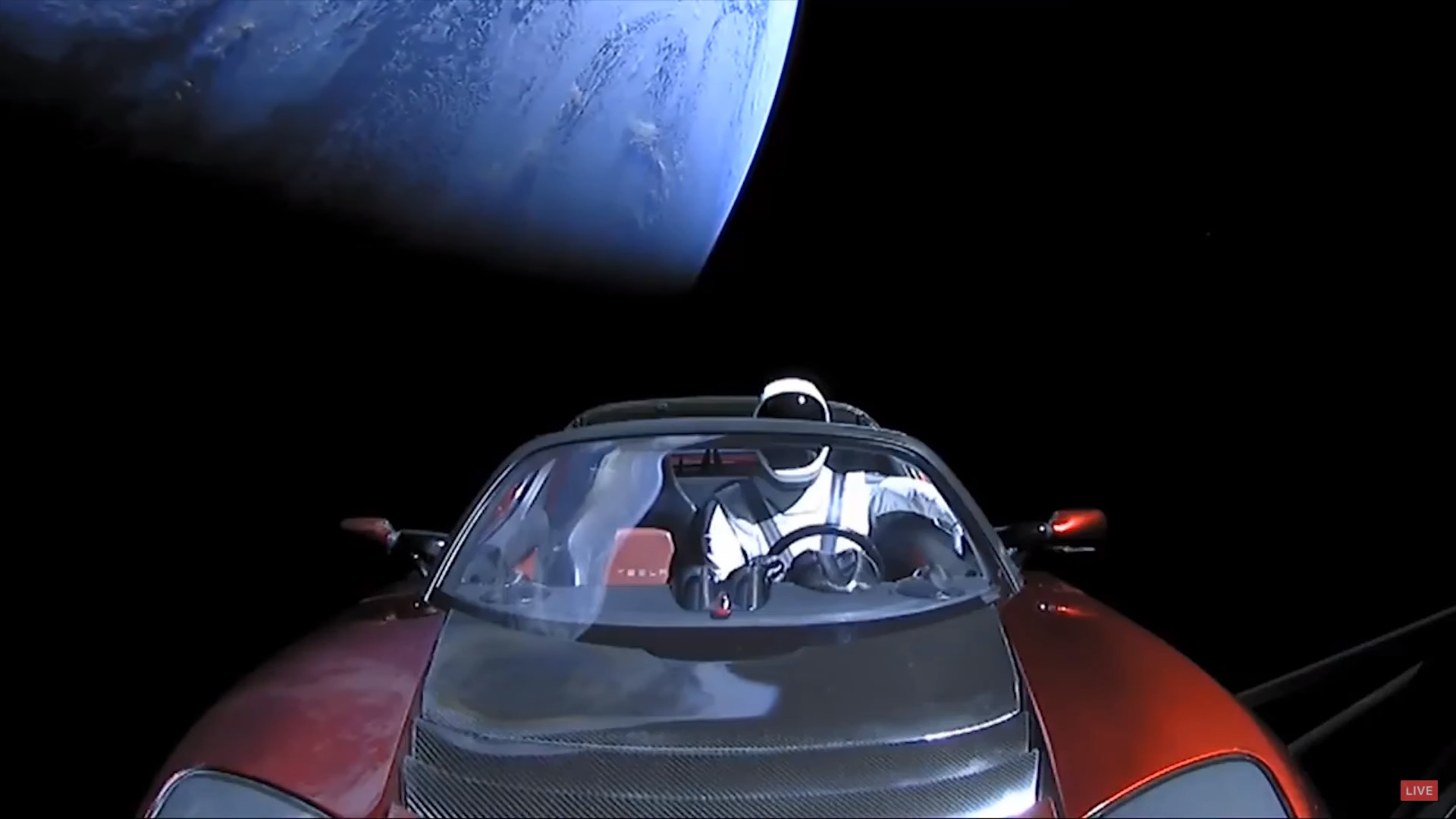

Though cars and space travel are very different industries, there may be more benefits to Tesla and SpaceX sharing a CEO than shooting Elon Musk’s Roadster into space. Tesla’s earthbound cars could benefit from a satellite broadband network that SpaceX is working hard to launch into orbit.
CNBC reports that autonomous cars, such as Tesla hope to achieve one day (“Autopilot” is absolutely not full autonomy, contrary to popular belief), will generate and consume a massive amount of data. Today’s autonomous test vehicles, which admittedly are not yet optimized, transfer about 500 times more data than the average smartphone contract. It wouldn’t take very many autonomous cars on the road, sending and receiving data at that rate, to overload the current system.
Fortunately, Elon Musk not only has Tesla, who makes cars that are reportedly already equipped with all of the necessary hardware for fully autonomous operation (future software updates would theoretically enable this), he also has SpaceX, a company in the business of launching satellites into space. Ars Technica reports that last month the Federal Communications Commission approved a SpaceX plan to launch a network of 4,425 small satellites called Starlink (not to be confused with Subaru’s Starlink infotainment system) into low Earth orbit to provide continuous broadband service worldwide. This could be exactly what Tesla needs to manage its own data without bogging down the ground-based cellular networks.
Unlike sending a Tesla to Mars, this concept is really not far-fetched at all. SpaceX has already launched numerous satellites for the Iridium network, which Zach Bowman tested while living in a truck for nine months and found works quite well. The last SpaceX launch on March 30 released ten new Iridium satellites into orbit to improve network coverage, with more launches planned later this year.
Traditional communication satellites, as well as GPS satellites, orbit the Earth in a circular orbit 22,300 miles above the planet. This is called “geostationary orbit” because it takes exactly one day to orbit the Earth, meaning that the satellite is always over the same point on the Earth’s surface.
But it is much more expensive to place a satellite into this higher orbit than low Earth orbit, which is just a few hundred miles above the surface. Additionally, communication with satellites farther away requires larger antennas and more transmitter power than a low Earth orbit satellite. In 1990, as a high school student, I personally made amateur radio contact with cosmonaut Sergei Krikalev aboard the Mir space station in low Earth orbit, using 45 watts of power through an antenna designed for terrestrial communications, not satellite. That’s how simple it can be. A couple hundred miles isn’t very far for a radio signal to travel, especially when there are no obstructions like mountains or buildings between radio stations.
The biggest problem in communicating directly with low Earth orbit satellites is that they are only in the range of ground stations for a maximum of 10 minutes, and that’s only when passing directly overhead. Hence the SpaceX plan to deploy a whopping 4,425 Starlink satellites. That’s a lot of satellites, but they can be simple, small, and inexpensive to build and to launch. For one thing, multiple satellites can be launched from a single Falcon 9 rocket, which is already happening with Iridium’s satellites. Additionally, SpaceX is already recovering and reusing Falcon 9 rockets more and more reliably, further reducing the cost of launches.
With 4,425 Starlink satellites swarming the Earth, there will be at least one satellite overhead anywhere on the globe at any time, which means uninterrupted access from the ground (or ocean) to the Starlink network. All in all, it seems a neat and tidy solution to the question of autonomous data, all handled within the confines of Elon Musk’s corporate empire.
We’ve reached out to Tesla to see what it has to say about the future of autonomous car communications through the SpaceX Starlink network, and will update if we hear back.